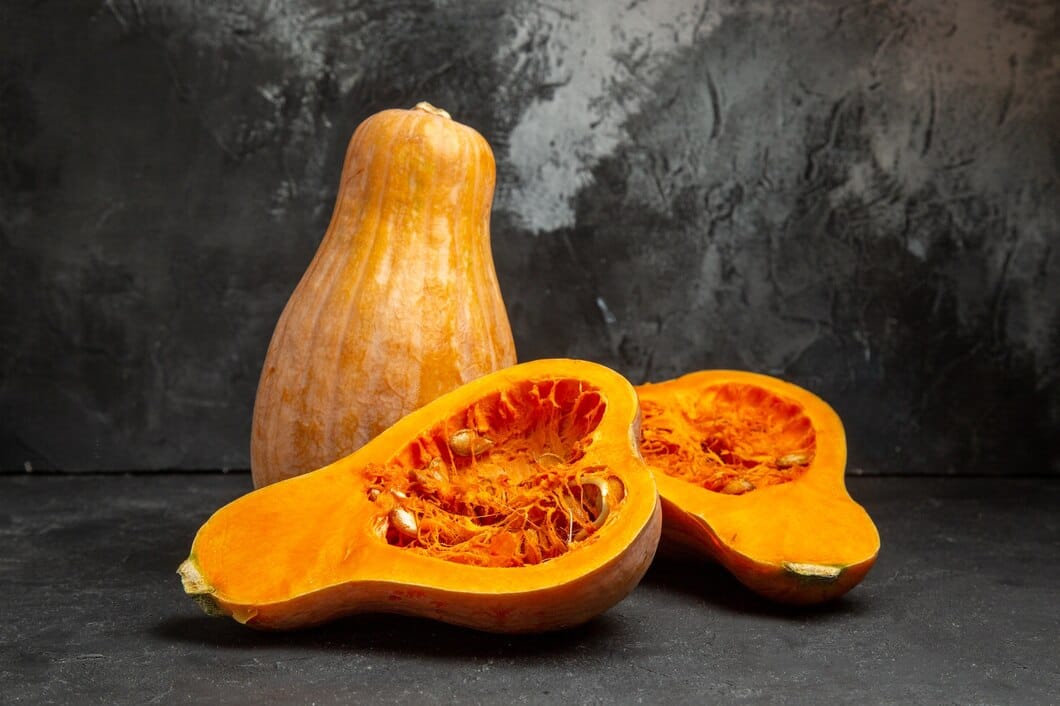Squash: All you need to know about this vegetable with many virtues
SquashThe cucurbit, a member of the Cucurbitaceae family, is an ancient and popular vegetable with numerous health benefits. It originated in South America and was introduced to Europe in the 16th century. Since then, squash has spread around the world as a nutritious and versatile food. With a variety of shapes, sizes and colours, squash is widely used in cooking, but it is also becoming increasingly popular as a dietary supplement. In this article, we'll take a look at the benefits of squash, its origin and its use as a dietary supplement.
The benefits of squash
Squash is a highly nutritious vegetable, rich in vitamins, minerals and antioxidants. Here are some of the main health benefits of squash:
- It is rich in vitamin A One cup of squash contains more than 200% of the recommended daily intake of vitamin A. This vitamin is essential for good vision, healthy skin and a strong immune system.
- It is a source of fibre Fibre: squash is rich in fibre, which is excellent for digestion and helps prevent digestive problems such as constipation. Fibre also helps to regulate blood sugar levels and reduce the risk of cardiovascular disease.
- It is rich in vitamin C Vitamin C: squash also contains a good amount of vitamin C, which is a powerful antioxidant that protects cells from damage caused by free radicals. Vitamin C also helps boost the immune system and maintain healthy skin.
- It is rich in potassium Potassium: potassium is an important mineral for the proper functioning of the body. Squash is a good source of potassium, which helps to maintain healthy blood pressure and reduce the risk of cardiovascular disease.
- It is low in calories Squash: squash is a low-calorie vegetable, making it an excellent choice for those looking to watch their weight. It can be used to replace certain high-calorie foods such as potatoes for a healthier, more nutritious alternative.
Using squash as a dietary supplement
Thanks to its many health benefits, squash is also used as a dietary supplement to help treat and prevent certain diseases and disorders. Here are a few examples of uses for squash as a food supplement:
- Improving prostate health Studies have shown that certain compounds found in squash, such as carotenoids and tocopherols, can help reduce the risk of prostate problems such as benign prostatic hyperplasia and cancer.
- Prevention of cardiovascular disease Squash is rich in antioxidants and fibre, which help to reduce blood cholesterol levels and prevent cardiovascular disease. Studies have also shown that eating squash reduces the risk of heart attacks and strokes.
- Improving digestive health Squash: because of its fibre content, squash can be beneficial for people suffering from digestive problems such as constipation. It can also help maintain the balance of intestinal flora and prevent intestinal infections.
- Boosting the immune system Thanks to its vitamin and antioxidant content, squash can help boost the immune system and prevent infectious diseases.
- Improving eye health Lutein and zeaxanthin: squash is rich in lutein and zeaxanthin, antioxidants that are beneficial for eye health and can help prevent age-related eye diseases.
Other uses for squash
In addition to its health benefits and its use as a food supplement, squash has many other uses:
- In the kitchen Squash: squash is a versatile vegetable that can be used in a variety of ways in the kitchen. It can be eaten raw or cooked, in purées, soups, au gratin, pies and even desserts.
- In cosmetics Pumpkin seed oil: pumpkin seed oil is rich in fatty acids and vitamins, making it a beneficial ingredient for the skin and hair. It is often used in cosmetic products for its moisturising and nourishing properties.
- In agriculture Squash: squash is a hardy plant that can be grown in almost every region of the world. It is often used in agriculture to help pollinate other plants and enrich the soil with nutrients.
Conclusion
Squash is an ancient and popular vegetable with many health benefits. It is rich in vitamins, minerals, fibre and antioxidants, making it an excellent food for maintaining good health. What's more, its versatility makes it an ingredient of choice in cooking, cosmetics and agriculture. Used as a dietary supplement, squash can help prevent and treat certain illnesses and health problems. Don't hesitate to include this cucurbit in your diet to enjoy its many benefits.
Sources :
- Evaluation of carotenoids, tocopherols and polypenyls in pumpkin seeds and their use as food supplements
- Beneficial effects of squash on the prevention of cardiovascular disease
- Antioxidant and anti-inflammatory properties of squash
- Using squash in cosmetics: overview and prospects
- Agricultural use of squash to improve plant growth and production











